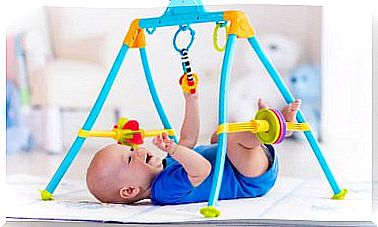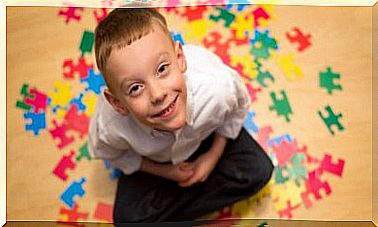Keys To Managing Children’s Complaints

Everyone, both adults and children, complains at some point. This is a legitimate right we have to express our discontent or claim an injustice.
However, when our children live protesting everything that happens in their lives, our home is filled with negativity, and the little ones are the most affected. Do you want to know how to handle children’s complaints? Continue reading.
Suppressing emotions is not healthy. We have to teach the little ones to relate to their negative feelings. Therefore, the complaint can serve as an outlet when it occurs at specific times.
However, when it becomes an ingrained attitude, it has serious consequences. To avoid this, it will be essential to work with our children from their infancy.
Complaints are part of life
Complaints are common and present at all stages of life. While the child is a baby, they will only have crying to express their disgust or discomfort ; Later, he may resort to tantrums or aggressive behavior. In any case, this responds to a lack of resources to be able to understand and adequately express what is happening to him.

With the arrival of puberty, their complaints and claims will increase for situations that, in their opinion, are unfair. However, you will already have the ability to convey your discontent in a more mature way.
However, it is important to know that the mission is not to eradicate the complaint, but to channel it. It is positive that our children have the confidence to express disagreement, give their opinion and show their emotions. Also, the complaint can help us understand how they feel and what they need. However, when children get used to using it often, they are getting into a really bad habit.
How do complaints affect children?
When the little ones assimilate the complaint as a strategy of common use, they are predisposed to detect every event, detail and negative circumstance of their life. They lose the ability to appreciate the gifts and advantages that surround them and place themselves in the position of victims. With this, their self-esteem, confidence and happiness diminish enormously and, in addition, they close the possibility to develop more useful coping skills.
Complaining continuously will make them feel helpless in life and unable to change their circumstances. Ultimately, the complaint is an intolerance of frustration. In addition, this can create family friction and disturb the environment at home.
It is even possible that minors use this widespread protest as a means of manipulating adults or evading their responsibility. For this reason, it is important that we equip them with more positive attitudes and tools.
Keys to managing children’s complaints
- Be an example. We have to be careful with our own tendency to complain and victimize ourselves by what happens to us. Let us remember that children imitate what they see, therefore, let us try to be an example of confidence, calm and decisive capacity.
- Avoid giving in to child complaints that are intended to manipulate us in some way. As parents, we must be clear about the limits we want to set and stand firm against them. If the complaint leads us to change our mind in favor of the child’s wishes, we will lose authority and reinforce this behavior.

- Teaching children to communicate assertively is essential. If the child feels unhappy, the solution is not to ignore his complaint, but to help him express it in an appropriate way. To do this, let’s try to ask him to calm down and express himself without crying or aggressive behavior; At that time, we will attend and help you.
- Let’s foster a positive and decisive attitude. Let us accompany the child in the process of thinking about possible solutions to what bothers or dislikes him. Complaining stagnates us in negative emotions and helplessness, so putting your problem-solving skills into action will help you get ahead and increase your self-confidence.
The attitude is forged from childhood
In short, we must remember that children are, to a large extent, a blank canvas that is molded based on the education received. Thus, if you have detected a tendency to complain in your child, it is important to act on it. Instilling a positive and resilient mindset, capable of tolerating frustration, expressing himself appropriately, and finding solutions is the best gift you can give your child.










